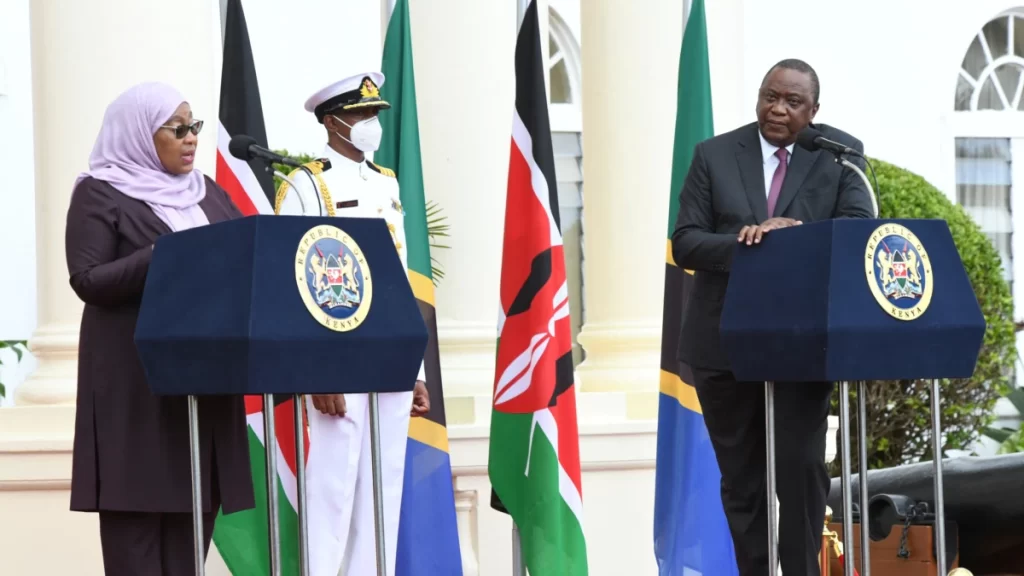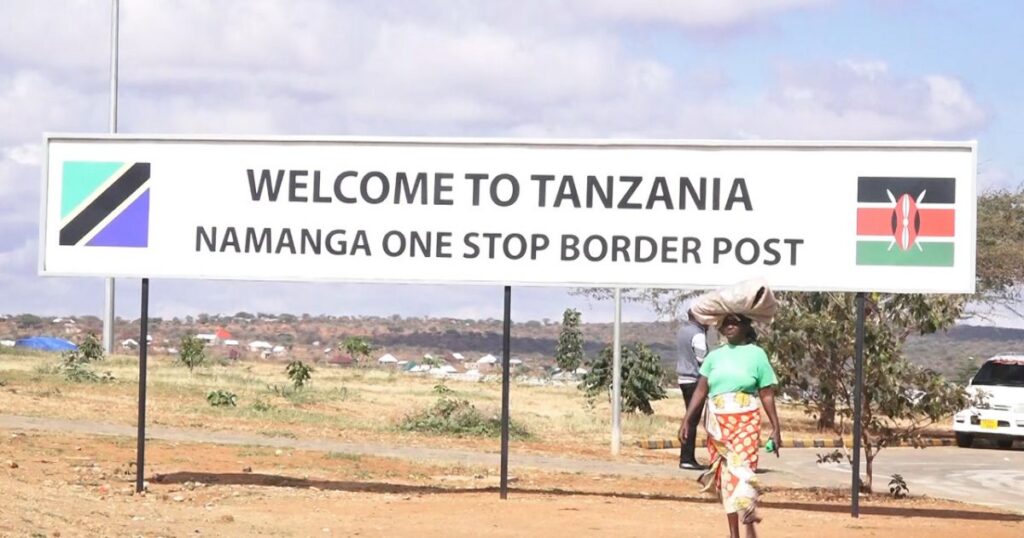
Bilateral trade between Kenya and Tanzania hit US$905.5 million from January to November 2021, according to the Central Bank of Kenya.
The East Africa Business Commission (EABC) highlighted the trade success during the EABC Trade Facilitation Forum at Namanga One-Stop Border Post (OSBP).
“Kenya imports from Tanzania stood at US$501 million and exports at US$403.9 million,” said John Bosco Kalisa, the Executive Director of EABC. Bosco praised Tanzanian President Samia Suluhu Hassan and Kenyan President Uhuru Kenyatta for harmonising trade barriers resulting in a better trading environment.
The Namanga OSBP Kenya station manager, Joseph Maywaywa, said that the border reported a threefold increase from May last year in the trucks passing through the border. The border is currently clearing 250 trucks daily.
The Freight and Forwarders Association leaders encouraged the separation of the Import Declaration Form from the Integrated Customs Management System of Kenya. Moreover, they campaigned to set up a permanent cargo scanner at the border to facilitate trade.
The chairman of Kenya International Freight and Warehousing Association (KIFWA), Mr Daniel Wainaina, said the clearing cargo cost on the Kenya side has increased by 70 per cent. He said that for a 20metric tonne truck, the clearing cost is roughly US$200.
Gerald Masila, the chief executive of East African Grain Council (EAGC), noted the EAGC was at the forefront of developing EAC harmonised standards on cereals and grains. The council also spearheaded the creation of sampling and testing standards to boost cross-border trade of cereals in the region.
Traders have been calling for more staff to be posted at the Agriculture Food Authority (AFA) of Kenya to facilitate the approval of applications of maise import from Tanzania to Kenya. Additionally, the traders requested joint testing of aflatoxin to be undertaken in Arusha to reduce the number of rejections at the border.

Peter Musiba explained that the Tanzania Bureau of Standards (TBS) is tackling aflatoxin and has set outstations for testing in Dodoma, Singida and Shinyanga to facilitate the trade of cereals.
Paloma Fernanda, the Chief Executive of Cereals Millers Association, urged for a joint campaign on combating aflatoxin from as early as farm and post-harvest losses in the EAC region.
Alice Lemowo and Sarah Keiya, the chairpersons of Women Cross Border Traders, urged President Samia’s administration to allow national identity cards as legal travel documents and capacity building on the customs procedures.
The Ministry of East African Community and Regional Development of Kenya set up a Jumuiya market at Namanga. The administration said that Tanzania and Kenya have strong trade ties to support cross-border ties.
The Jumuiya market will recognise women in business by promising a stall for women cross-border traders in the market.
Ms Eugenia Mwesiumo-from, the Ministry of foreign affairs and East African Corporation in the Republic of Tanzania- said that the EAC common market would only flourish through trade facilitation. She outlined the importance of border agencies in streamlining cross-border trade.
The challenges encountered at the Namanga border include:
- Lack of mutual product standards between Kenya and the United Republic of Tanzania.
- Delay and system failures in the issuance of C4 documents.
- Multiple roadblocks on both sides of the countries.
- Cargo scanner malfunctions lead to cargo truck traffic jams, which discourages cross-border trade in perishable goods.
The EABC Trade Facilitation Forum had an attendance of over 70 delegates, including officials from the Ministry of EAC Affairs, importers and exporters, trade facilitation agencies, Kenya National Chamber of Commerce and Industry, women cross-border traders, transport and freight forwarders and the German Agency for International Cooperation (GIZ).
GIZ supported the forum through the Support to East African Market-Driven and People-Centred Integration programme (SEAMPEC).
SEAMPEC aims at:
- Improving the legal framework, consequently removing identified trade barriers in the tourism, ICT and professional services sectors.
- Aiding the business sector in developing policy recommendations.
- Helping the EAC jointly formulate harmonised positions in the African Continental Free Trade Area (AfCFTA).
Additionally, the SEAMPEC assists selected economic sectors- pharmaceutical sector, leather production, avocado, cocoa, coffee, tea, spices, and horticultural products- by implementing regional agreements that improve framework conditions for increasing value-addition.





